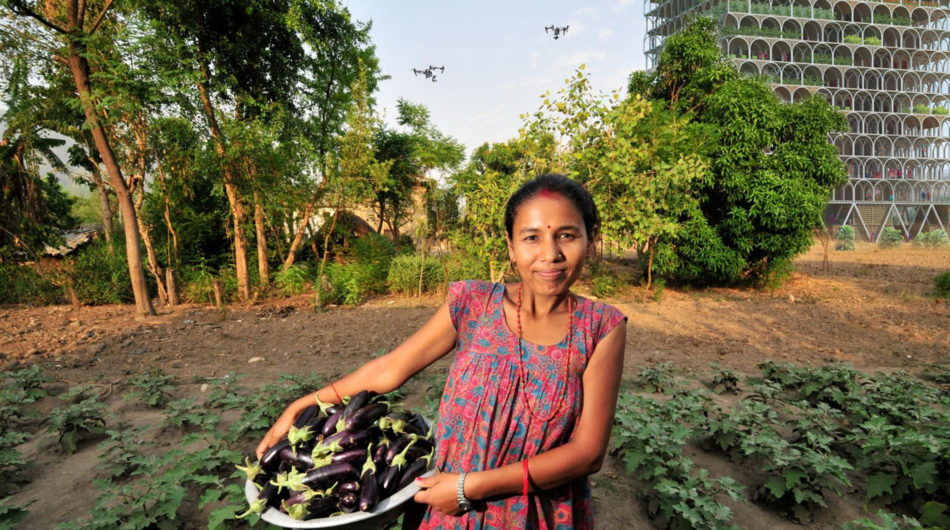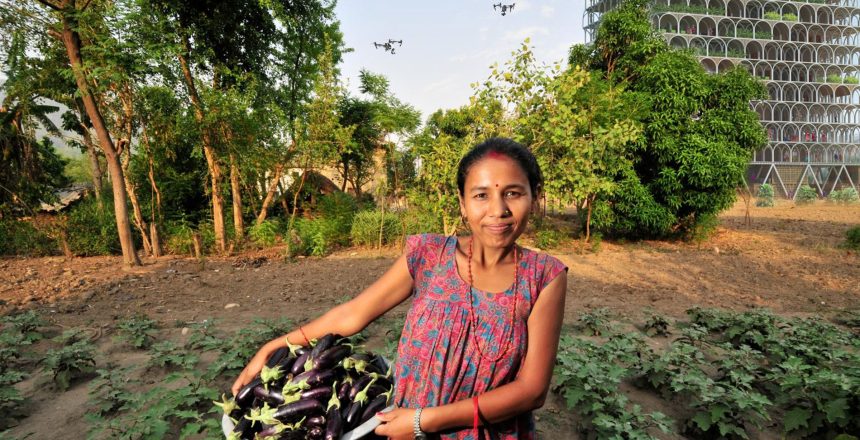‘Food, glorious food! Hot sausage and mustard! While we’re in the mood, cold jelly and custard!’ …Sings no one any more because we’ve been told that sausages give you cancer and custard is a gateway food to type 2 diabetes.

Our usage of and attitude towards food has changed a lot over the years. A once scarce and earned resource to a symbol of status. A feast for the privileged few to an abundance of cheap calories. A bare necessity to a geopolitical football.
And still there are starving people on the planet.
In predicting the future of food, we first need to clarify a couple of environmental factors at play in 2044.
- The population bomb
By 2044, the world’s population is likely to be 9 billion. That’s a lot more people to feed with a lot less land to do so. - Climate change
Despite the Trumpian assertion that climate change is ‘a very, very expensive form of tax’, most other people on the planet will be forced to address its impact by 2044. A single degree rise in global temperature means a 15% reduction in evaporation. So less water for the world’s farming regions.
So how will these factors, together with technology and the change in consumer tastes, impact the future of food?
Farms in the clouds
With a planet under stress and 9 billion people to feed, the way we grow our food has to change. Meat for the masses will be produced in a lab, and fruit and veg will be grown in skyscrapers in the cities and towns where we live. ‘Pick your own’ will be back in fashion
Cultivating new food sources
To combat an over-reliance on traditional grains, we will have greatly expanded the diversity of our food sources. Expect algae, insects, swamp taro, sea buckthorn and peach palm to feature on menus. Remember that kale used to be eaten almost exclusively by cattle.
New methods of consumption
Some consumers will continue to be deluded into thinking that they are ‘too busy to eat’, so we are likely to see ‘food patches’, which will deliver essential nutrients through the skin. In addition, we will use vapour sprays to inhale the smell and taste of certain guilty pleasures (ie chocolate) without the calories.
Smart dining
Smart tech and AI will be an integrated feature of how we eat out. Imagine fast-food server-less restaurants, where the tables are giant touchscreens that sync with smartphone-like devices, offering you menus based on what you ate last time. In the more upmarket eateries, dishes are elegantly assembled by robotic kitchen appliances programmed to mimic the recipes of famous chefs and designed to cut back on labour costs. Smart tech will also extend to packaging that keeps an eye on food deterioration to reduce waste.
Food-fuelled geopolitics
Food shortages and price spikes can, in huge understatement, cause unrest. Food instability will lead to shifts in the balance of power. Canada, Russia and parts of Scandinavia will actually benefit from climate change, as their once frozen tundras will thaw out to free huge regions for farming. Russia will need this more than ever as demand for its oil diminishes.
In the face of so much change and lives at stake, it seems rather glib to look too deeply at the implications for marketers, but we’ll give it a go:
- New product development
This will be a huge focus for marketers over the next two decades or so. The successful long-term food producers will be those who can identify and bring to market those new and sustainable food sources – not the manufacturers who add ‘protein rich’ to a packet of biscuits. - Changing our eating habits
We don’t like change much, but it’s coming. Marketers on both a strategic and tactical level will play a major role in persuading us that lab-grown meat is good for us and not at all unusual. - Keeping food ‘human’
As bio-tech, smart tech and AI infiltrate our eating habits, so the need to keep the human and cultural elements of food will be a key challenge.
Although, by 2044, most of us will be doing the majority of our grocery shopping online, we don’t think wooden spoons or the kitchen table will become obsolete.
The human race faces significant changes, which we will have to adapt to, and has tough challenges to overcome if we are to continue to thrive. But, ultimately, the human requirement for food is highly complex and involves pleasure, community and identity, as well as the need for fuel.
You can’t get all that in a pill.

The River Group:
The River Group is a 24-year-old, full-service content marketing agency based in Marble Arch, London. In an age of content spam, we don’t add to the noise, we make lean content designed around a simple consumer/brand value equation. Our content combines the new science of digital media and the old artistry of storytelling. We produce content for web, social and print, to address hard-nosed marketing objectives for 18 clients including Holland & Barrett, Co-op, Superdrug, Princess Cruises, Cunard and Ramblers. We have 104 staff and work across 18 international markets and billings of £15million.
Enquiries, please contact:
Jackie Garford
Managing Director
jgarford@therivergroup.co.uk



